 The Grey Bastards (The Lot Lands, #1) by Jonathan French
The Grey Bastards (The Lot Lands, #1) by Jonathan French Format: eARC
Source: supplied by publisher via Edelweiss
Formats available: hardcover, paperback, ebook, audiobook
Genres: epic fantasy, fantasy
Series: Lot Lands #1
Pages: 432
Published by Crown on June 19, 2018
Purchasing Info: Author's Website, Publisher's Website, Amazon, Barnes & Noble, Kobo, Bookshop.org
Goodreads
A raucous, bawdy, blood-soaked adventure fantasy debut that's The Lord of the Rings reimagined by way of Sons of Anarchy.
Jackal is proud to be a Grey Bastard, member of a sworn brotherhood of half-orcs. Unloved and unwanted in civilized society, the Bastards eke out a hard life in the desolate no-man's-land called the Lots, protecting frail and noble human civilization from invading bands of vicious full-blooded orcs.
But as Jackal is soon to learn, his pride may be misplaced. Because a dark secret lies at the heart of the Bastards' existence--one that reveals a horrifying truth behind humanity's tenuous peace with the orcs, and exposes a grave danger on the horizon. On the heels of the ultimate betrayal, Jackal must scramble to stop a devastating invasion--even as he wonders where his true loyalties lie.
My Review:
A hero’s journey is still a hero’s journey, even if the hero has tusks, and so does his hog.
In spite of the many comparisons to Sons of Anarchy, the hogs ridden by the Grey Bastards and their half-orc kin are real hogs. The kind that sometimes get turned into bacon – although certainly not in this case. These hogs are bred for riding into battle – and for loyalty to their riders.
The story in The Grey Bastards starts out small, and at the same time in just a bit of in media res. On the one hand, the focus is fairly tight on young Jackal and his band of brothers – even though one of them is actually a sister. Except when she’s not.
The story begins with Jackal’s perspective and Jackal’s point-of-view, in the world that he knows and is completely familiar with – although we don’t. It’s not our world and doesn’t seem to be an analog for any of the traditional mythological or fantasy worlds, in spite of its inclusion of humans, orcs, half-orcs, elves, halflings and centaurs – all under different, descriptive and occasionally vulgar names.
Those familiar casts of beings also have different functions and attributes in this world than in more traditional fantasy. But I hesitate to call these versions twisted because they aren’t that. They feel organic to this created world, just different from what we are used to.
Jackal also doesn’t explain the way that things in his worldview are different from ours, because for him that’s the way it’s always been and always will be – at least at the beginning.
But as the story continues, Jackal’s world expands as the expected patterns of his life begin fragmenting and eventually falling apart. He tries to fix the wrongs that he observes – and they are wrongs – by attempting a takeover of the established order.
However, he’s young and not nearly as smart as he thinks he is. He may be partly right, but he is also still partly wrong, and just a bit young and dumb. He gets outmaneuvered and is forced to learn about his world as it really is, and not just the way he’s always told that it has been.
It’s clear that the expansion of his worldview is going to be the making of him – if that world survives the chaos that is rapidly descending upon it.
Escape Rating A+: There are going to be people who want to label this one grimdark. Jackal’s world is certainly in a state of decay, and there are plenty of times when his situation seems pretty grim. But this world isn’t operating in the shades of grey that are the hallmark of grimdark, in spite of the title.
Jackal wants to make things better. That the situation is actually worse than he has any clue about when the story begins doesn’t change the fact that he is always trying to improve the situation for not just his own people but also anyone else that he comes across who seems to be innocent or downtrodden or just caught up in a bad mess that is not of their own making.
Not that he isn’t more than willing to kill anyone on the other side – particularly those who perpetrated some of the “wrong” situations he comes across. He’s not sweetness and light, he’s a warrior from a brutal and warlike people, but he is trying to leave his world better than he found it.
It’s just that he’s naive enough in the beginning not to see just how bad it is – and how much worse it’s going to get. But he does seem to have a very real chance of fixing at least some of the things – once he gets his head out of his own ass.
There are certainly things about The Grey Bastards that will perturb some readers. The book is incredibly profane. Nearly all of the characters in this book cuss as much as Kiva Lagos in The Collapsing Empire by John Scalzi. These two books otherwise have nothing to do with one another, except that both are first books in series that look to be awesome. But Kiva’s constant stream of cussing is epic in scope. None of the individual characters in The Grey Bastards cuss as much as Kiva does alone, but the sum totals feel similar. And equally appropriate for the characters and the story.
There is also a thread of what could be considered misogyny throughout The Grey Bastards, and not just because the story opens in a brothel. The leader of Jackal’s settlement claims that females are only good for two things, and I quote, “fucking and fetching.” His attitude, that females are only capable of being whores, bedwarmers (whores with only one partner) or errand runners is one that seems to be commonly held among the half-orcs – or at least the old guard.
At the same time, the pivotal character in this story is Fetching, the only female member of the warband. And her importance to the story is not as a love interest, but as a formidable fighter and one who ultimately makes the crucial decisions and takes up the mantle of leadership.
Many of the other strong and/or important characters are also female, the elf female Starling who helps to create a critical partnership and Beryl, the adopted mother of virtually the entire half-orc clan. They are, in every way, the equal of any of the males – and their roles in the story are much more important than most.
It feels like a “do as I say, not as I do” dichotomy. The world seems to be male dominated, while at the same time the female characters are crucial and mostly not in traditional female or in only traditional female roles. And it does seem to be one of the things that Jackal finds repugnant at least some of the time.
On my third hand, there’s definitely an attitude that all the whores are happy and enjoy their work and don’t wish for anything different. And while that’s theoretically possible, it feels beyond unlikely.
Obviously I have divided feelings on this particular score.
While I am completely out of hands on this, one of the things that I found fascinating was the way that foundational myths were used for so many purposes. Jackal and his cohort are taught a version of their story that was designed to inspire pride and loyalty AND cover up ugly truths. When it becomes necessary for Jackal to learn more and BE more, he is forced into learning the REAL truth about the formation of the Lot Lands and their true purpose in the scheme of things. While that truth doesn’t exactly set him free, it does give him better perspective and even more reasons to fight – and it also changes the battlefield.
I absolutely do not have divided feelings on the book as a whole. It was a compelling read from its intimate beginning to its eye-popping and world-breaking end. It feels like the opening of a huge, sprawling, brawling, epic fantasy series.I want more, and I want it now. But I’ll have to wait just a bit. The True Bastards ride next July.

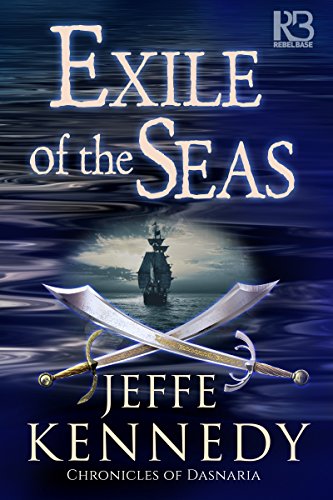 Exile of the Seas (The Chronicles of Dasnaria #2) by
Exile of the Seas (The Chronicles of Dasnaria #2) by 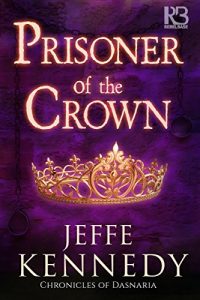 However, it is crucial – albeit heartrending, that one read the first book in the
However, it is crucial – albeit heartrending, that one read the first book in the 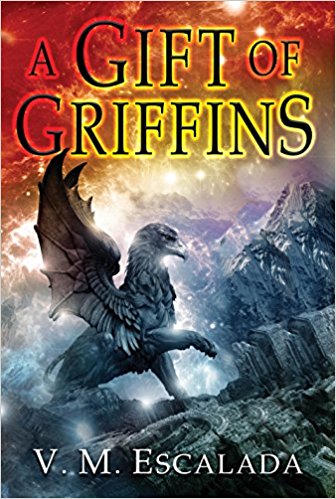 Gift of Griffins by
Gift of Griffins by 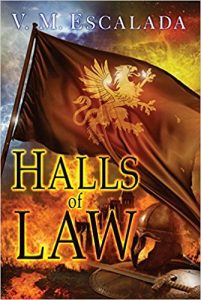 Gift of Griffins is the direct followup to last year’s terrific
Gift of Griffins is the direct followup to last year’s terrific 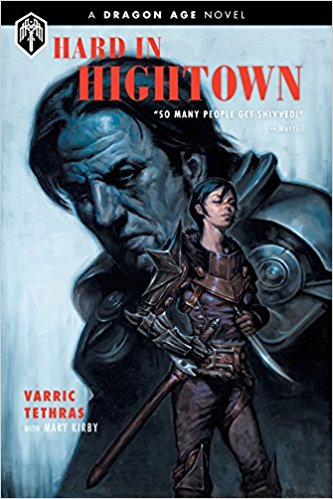 Hard in Hightown by
Hard in Hightown by 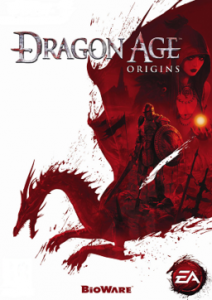 This book seems like it’s kind of a joke. Admittedly an in-joke for people who love the
This book seems like it’s kind of a joke. Admittedly an in-joke for people who love the 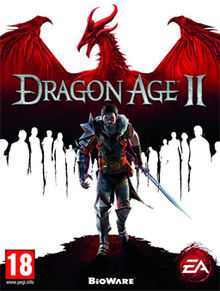 In other words, Hard in Hightown is a mystery set in a fantasy universe. Reading it brought back a lot of fond memories, both of the game and of the fantasy mysteries it strongly resembles.
In other words, Hard in Hightown is a mystery set in a fantasy universe. Reading it brought back a lot of fond memories, both of the game and of the fantasy mysteries it strongly resembles.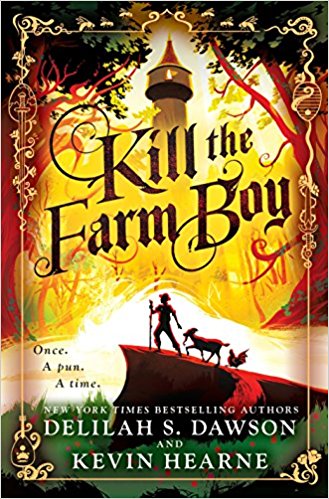 Kill the Farm Boy (The Tales of Pell, #1) by
Kill the Farm Boy (The Tales of Pell, #1) by 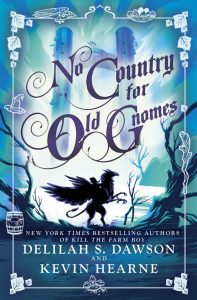 And those are almost always “funny once”.
And those are almost always “funny once”.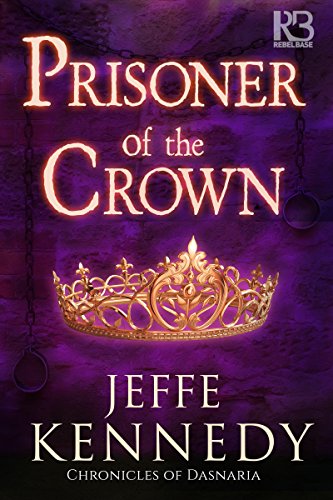 Prisoner of the Crown by
Prisoner of the Crown by 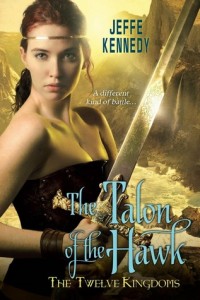 We’ve met her brother Harlan before in the
We’ve met her brother Harlan before in the 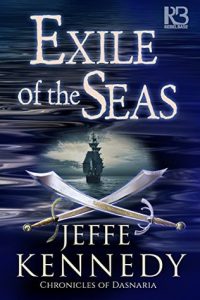 But for those who have not read the previous series,
But for those who have not read the previous series, 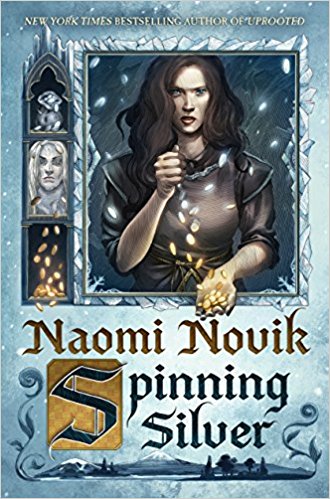 Spinning Silver by
Spinning Silver by 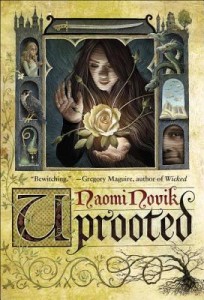 This is the story of Persephone at Night on Bald Mountain, with a bit of an assist from Rumpelstiltskin. In other words, Spinning Silver is another from the mind of Naomi Novik, a fitting follow up to the utterly marvelous
This is the story of Persephone at Night on Bald Mountain, with a bit of an assist from Rumpelstiltskin. In other words, Spinning Silver is another from the mind of Naomi Novik, a fitting follow up to the utterly marvelous 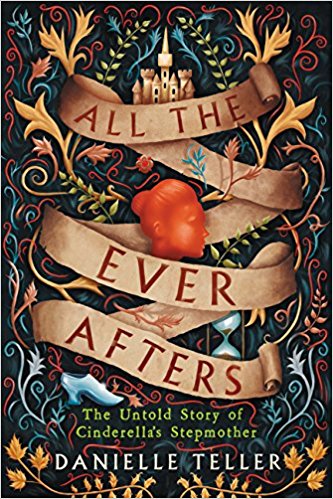 All the Ever Afters: The Untold Story of Cinderella’s Stepmother by
All the Ever Afters: The Untold Story of Cinderella’s Stepmother by 
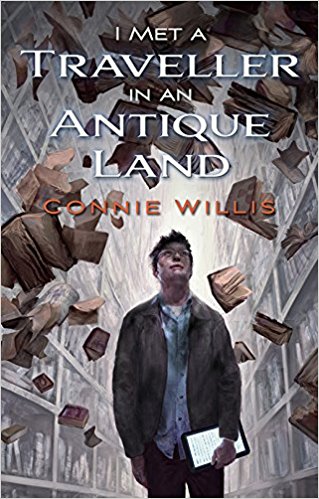 I Met a Traveller in an Antique Land by
I Met a Traveller in an Antique Land by 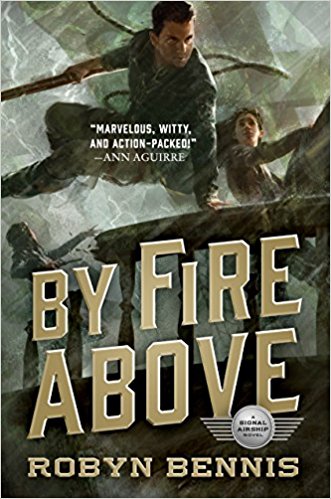 By Fire Above (Signal Airship, #2) by
By Fire Above (Signal Airship, #2) by 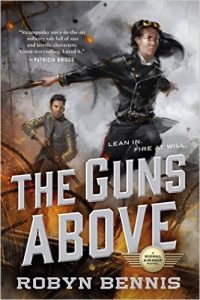 By Fire Above is the direct sequel to last year’s absolutely awesome
By Fire Above is the direct sequel to last year’s absolutely awesome